
After Blasting US, China Says It Wants to Improve Military Ties With Washington

The Chinese regime on Monday expressed willingness to renew defense bonds with the United States after taking several swipes at Washington during a security forum in Beijing.
Gen. Zhang Youxia, the vice chairman of the Chinese Communist Party’s (CCP) Central Military Commission, a decision-making body of the country’s military, used the Beijing-led conference of global military officials to showcase the regime’s diplomatic clout, as the world grapples with the war in Ukraine and conflicts in the Middle East.
“We wish to develop relations with foreign militaries on the basis of mutual trust,” Gen. Zhang said at the opening ceremony of the Xiangshan Forum on Oct. 30, an annual event sometimes touted as China’s answer to the Shangri-la Dialogue in Singapore.
After pledging to “deepen strategic cooperation and coordination” between the Chinese and Russian militaries, Gen. Zhang said China is “also willing to develop military ties” with the United States, but noted such cooperation should be based on what he called “mutual respect, peaceful coexistence, and win-win principles.”
Gen. Zhang’s comment came as Washington and Beijing remain at odds on issues ranging from Ukraine to Taiwan. After the Biden administration’s efforts to resume diplomatic engagement with China, the communist regime sent its top diplomat Wang Yi to Washington last week, a trip that was widely interpreted as a sign that tensions between the world’s two largest economies begin to ease.
But the warming in the U.S.–China ties didn’t last long. On Monday, Gen. Zhang, a close military ally of Chinese leader Xi Jinping, took several veiled jabs at the United States, blaming “certain countries” for instigating regional conflicts.
“Certain countries keep stirring up troubles around the world. They deliberately create turbulences, meddle in regional affairs, interfere in other countries’ internal affairs, and instigate color revolutions,” Gen. Zhang told the forum. The regime’s senior officials have already been using such words to describe the efforts by the United States and its allies to pressure the CCP over its aggression toward Taiwan and strategic support for Russia’s war in Ukraine.
Taking the stage after Gen. Zhang, Russia’s defense chief Sergei Shoigu hailed the close ties between Beijing and Moscow as “exemplary” while taking direct aim at Wahington.
“The West’s line of steadily escalating conflict with Russia carries the threat of a direct military clash between the nuclear powers, which is fraught with catastrophic consequences,” said Gen. Shoigu, according to the statement published by his ministry.
Separately, Gen. Shoigu and Gen. Zhang had a meeting on the sideline of the Xiangshan security forum on Monday, according to China’s defense ministry.
The message by the two senior military commanders was similar to the ones from the face-to-face meeting between Russian President Vladimir Putin and Mr. Xi earlier this month, underscoring the close bonds between Beijing and Moscow amid tension with the West.
Outside observers have told The Epoch Times that Mr. Putin needs support from the CCP in the face of Western sanctions against Russia over the war in Ukraine. But what drives Mr. Xi to show off the tight relations with Mr. Putin was the wish to divert attention from his economic and political challenges at home.
A notable absence from this year’s Xiangshan Forum was China’s defense minister, who has in previous years delivered the forum’s keynote speech. But just days ahead of the forum, the regime fired its defense minister, Li Shangfu, without offering any explanations. Beijing has yet to announce who will replace Gen. Li, a U.S.-sanctioned aerospace engineer who hasn’t been seen by the public since August.
The ousting of Gen. Li came after Mr. Xi removed several senior officials from their posts, including his handpicked foreign minister to top commanders overseeing China’s nuclear arsenal, adding to speculation about potential turmoil within the upper echelons of the CCP’s leadership.
‘Brief Exchange’
The three-day event attracted defense leaders from 23 countries, including Russia, Vietnam, and North Korea, according to China’s state media. Many Western countries have either shunned the forum or are only sending low-level delegations.
The U.S. Defense Department has sent a delegation led by Cynthia Xanthi Carras, China country director in the Office of the Undersecretary of Defense.
Mr. Carras had a “brief exchange” with Wu Qian, a spokesperson of China’s defense ministry, a social media account affiliated with state broadcaster CCTV reported.
The participation of the U.S. delegation comes as the United States and China ramp up exchanges ahead of an expected summit between U.S. President Joe Biden and China’s Xi next month.
Last week, China’s top diplomat, Wang Yi, met President Biden for an hour in talks the White House described as a “good opportunity” to keep open lines of communication between the two rivals.
But Mr. Wang suggested November’s Biden–Xi meeting will not be easy.
Speaking on the last day of his three-day trip in Washington, Mr. Wang told the U.S. strategic community that the path toward the San Francisco summit would “not be smooth sailing,” and the two sides cannot rely on “autopilot” to make that happen.
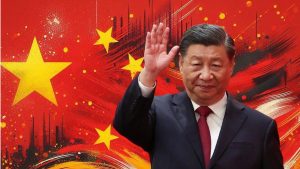
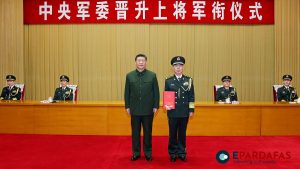

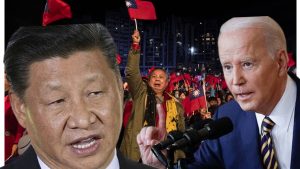
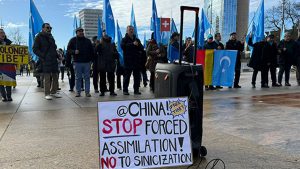
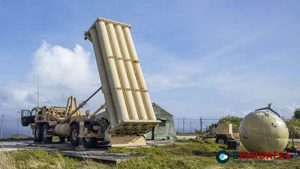

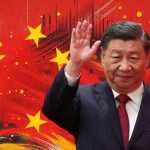


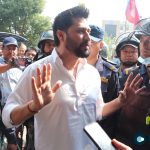
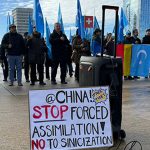
Comments